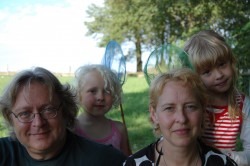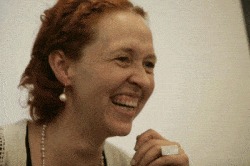Michèle Meyer learnt of her HIV infection in 1994 and expected to die early. Tonight, the happy family mum and self-help activist invites you to a chat. Topic: "Long-term survival!"
How do you look to the future when you have already finished with life? How do you deal with the long-term side effects of medication? How do you deal with friends surviving? These are the kinds of questions that will be addressed in tonight's chat on the topic of "Long-term survival!" with activist Michèle Meyer, President of the Swiss self-help organisation LHIVE.

Michèle herself has known about her infection since 1994. She suffered a miscarriage at the time and was diagnosed shortly afterwards. "At the time, I thought I would grow old with a burning desire to have children, but don't ask me how old!" she says. "There were no drugs back then." Today, she lives in a small town near Basel with her HIV-negative husband and two daughters who were also born negative.
(howi)
The chat with Michèle Meyer starts at 7.30 pm at www.house34.ch (Flashplayer required). And don't worry: Michèle chats in High German! 😉










